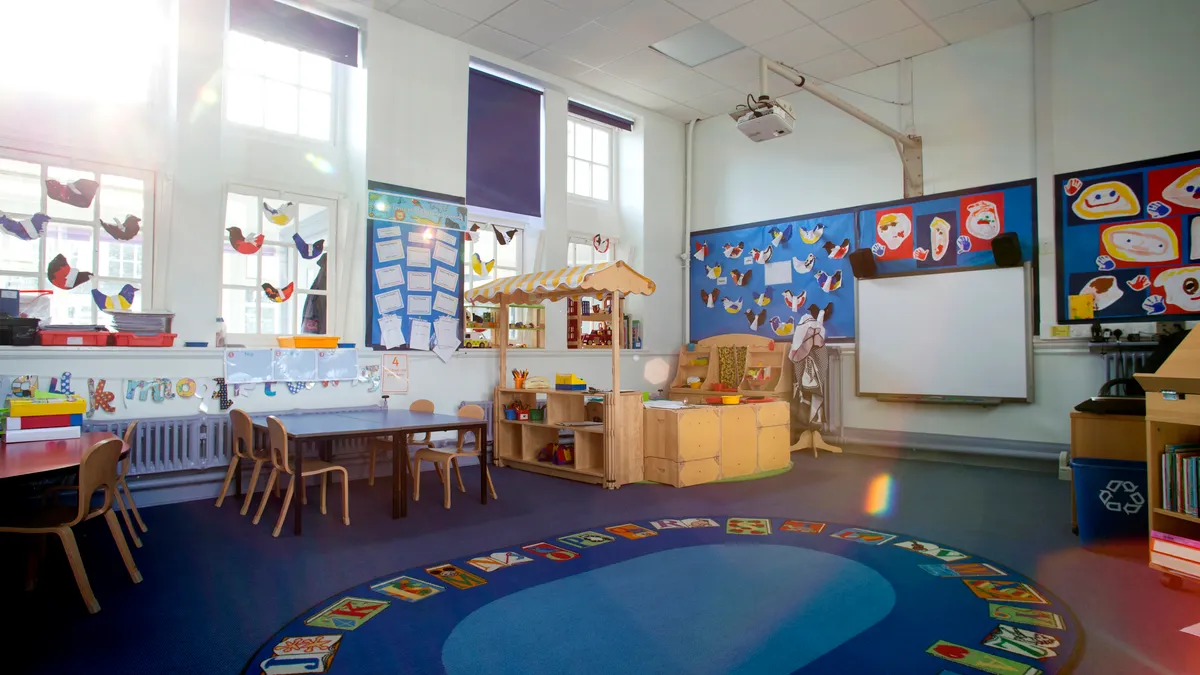Dive Brief:
- Almost half of early childhood educators are experiencing high levels of burnout and stress, according to a nationwide survey of 2,300 educators. The survey, published by early childhood education resource provider Teaching Strategies, shows 45% of early child educators are battling mental health challenges and burnout.
- Almost the same percentage, 43%, say staffing shortages are affecting their stress level. Mental health challenges are also partly why early childhood educators are considering a career change, according to the survey.
- Twenty percent of early childhood educators said they are considering leaving the profession. Of that group, 40% cited mental health as their reason, and 43% said compensation is driving their decision — though only 8% of early childhood educators say they're planning to leave in the next year.
Dive Insight:
The survey reflects trends in the broader teaching profession and field of education as a whole. Multiple surveys have suggested teachers are burnt out and facing mental health challenges post-pandemic.
Teachers and principals were twice as likely to report frequent job-related stress compared to those in other professions, according to a survey released by RAND Corp. in June. They were also more likely than others to report burnout and symptoms of depression.
However, that report found more than two-thirds of educators reporting such stress said they're coping well and were unlikely to leave their jobs prior to the end of the 2021-22 school year.
That's in contrast with reports in the previous school year, which suggested a large percentage of teachers were considering quitting their jobs or leaving the career entirely. Similar sentiments were recorded among principals.
According to the Teaching Strategies survey, early childhood educators who had access to professional development were more likely to be satisfied with their jobs. Of those who said they were planning to leave the profession, 65% were less likely to say they had access to professional development. Early childhood educators working in family child care settings or Early Head Start were the least likely to report access to professional development.
"The findings confirm what we have suspected: If we are to retain passionate educators, we must not only fairly compensate them for their critical work but we must make high-quality, flexible opportunities for professional growth more accessible,” said Teaching Strategies CEO John Olsen in a statement. “As the field looks to retain amazing educators, we can’t return to business as usual.”













